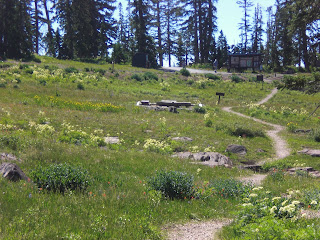Pentecost, or as it is known biblically, the Feast of Weeks,
Shavuot is one of the appointed times (moedim) of Yehovah, it is also one of
the pilgrimage moedim. The book of Acts describes that there were Jews from all
over the world in Jerusalem,
And suddenly a sound
came out of the heaven, as being borne along by a violent wind! And it filled
all the house where they were sitting. (3) And tongues as of fire appeared to them,
being distributed, and it sat on each one of them. Act 2:2-3
What were they all doing in Jerusalem?
Why were all these Jews from all over the world in Jerusalem
on Pentecost? Because at that time, it was Shavuot, a pilgrimage moed, and they
were obeying the instruction to go to Jerusalem.
Divorce and reconciliation
Most people today have divorced the biblical moed of Shavuot
from the Pentecost occurrences in the Apostolic Writings, but when we reconcile
them, we see a beautiful picture of our Elohim who doesn’t change. We learn
that what happened in the time of Peter was not new, but a return to what had
happened before. That is why the Jews knew it was a sign from Elohim. Here is
what Jewish tradition in the Midrash says about the giving of the Torah at
Sinai.
"On the occasion of the giving of the Torah, the
Children of Israel not only heard the LORD’s Voice, but actually saw the sound
waves as they emerged from the LORD’s mouth. They visualized them as a fiery
substance. Each commandment that left the LORD’s mouth traveled around the
entire camp and then came back to every Jew individually." Weissman, Moshe, The Midrash Says.
"And all the people witnessed the thunderings"
(Exodus 20:15). Note that it does not say "the thunder," but
"the thunderings"; wherefore R. Johanan said that God’s voice, as it
was uttered, split up into seventy voices, in seventy languages, so that all
the nations should understand.” Shemot Midrash Rabbah 5:9
The letter and the Spirit
Between the two occurrences, Sinai (the giving of the Torah)
and Jerusalem (the Spirit poured out on all flesh); we see the fulfillment of
the giving of the letter and the spirit of the Torah. We also see the
correction of the error of Israel.
At Peter’s time, Israel had adopted the erroneous belief
that only those born Israelites could participate in the covenant with Elohim.
That idea persists today within Judaism. The opposite persists in Christianity
in the idea that “the church” has inherited the blessings and “the Jews” are
left with the curses. Both sides have left the Torah teaching.
Where much is given much is expected
The Torah is clear that those who have the Torah and the
covenant are to be a light to others around them who do not. They are to move
the unbeliever to jealousy and a desire to come into covenant and begin to obey
Father’s instructions. The Torah contains the instructions that the Creator of
all things gave to humans on how we are supposed to live.
Those who have the instructions are supposed to share with
those who don’t, and we are all supposed to encourage each other to obey out of
love for Elohim, and love for our neighbor. For on these two commandments hang
all the Torah and the Prophets.

